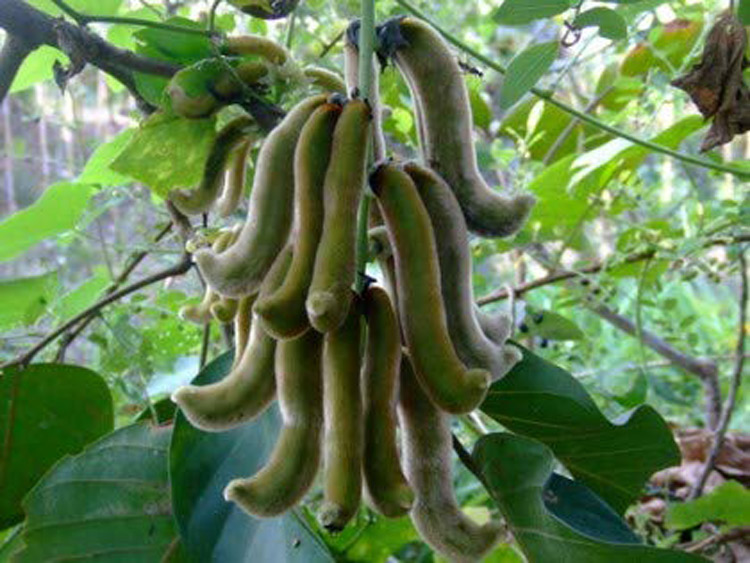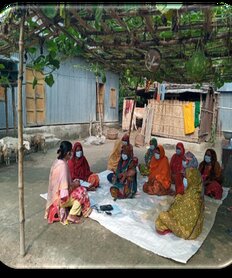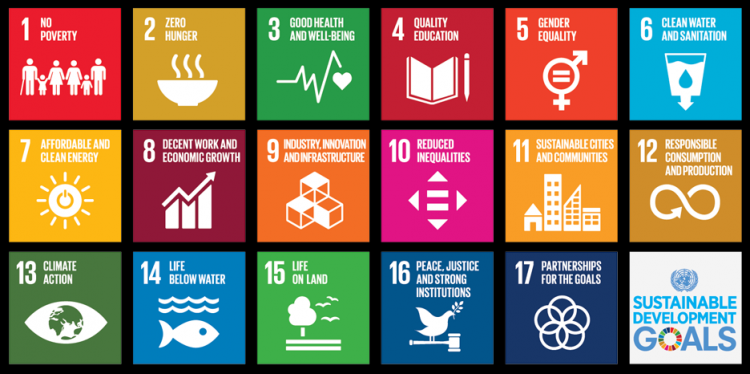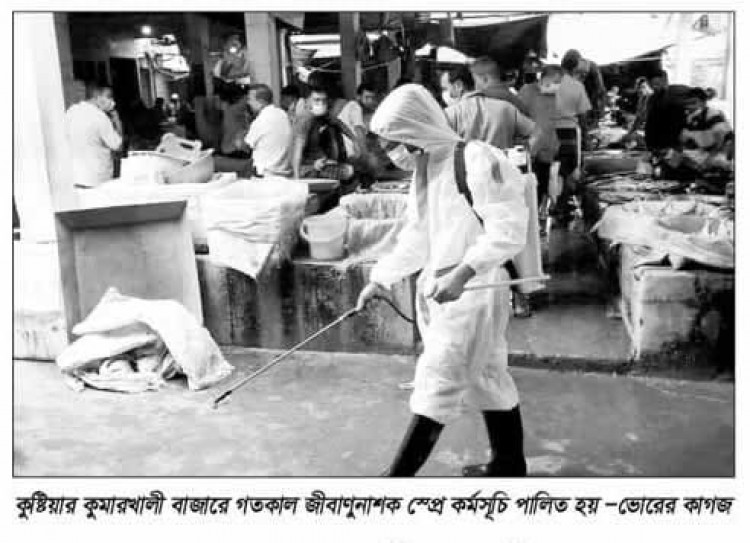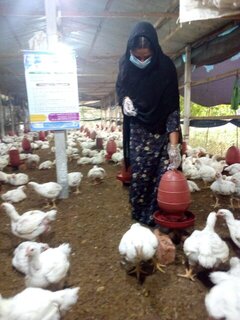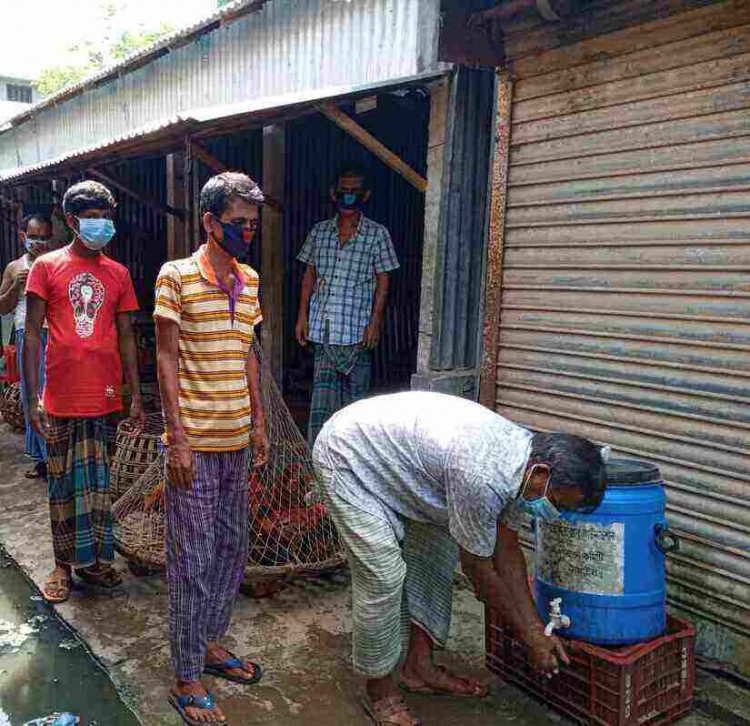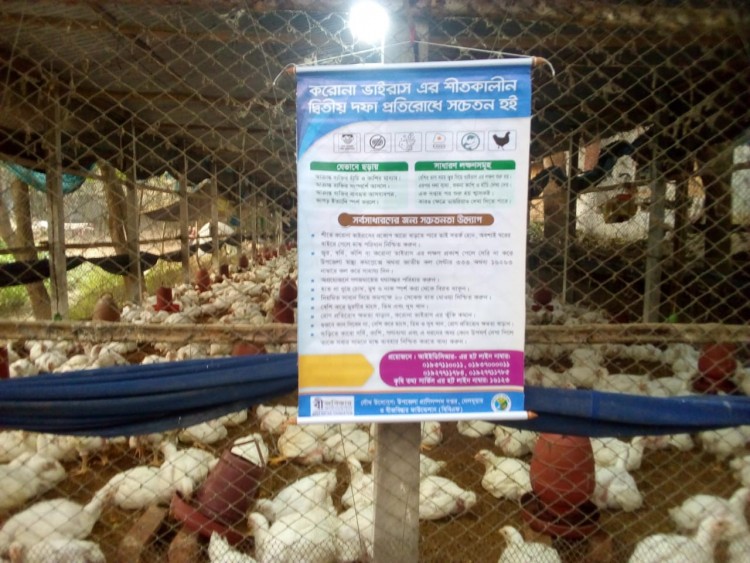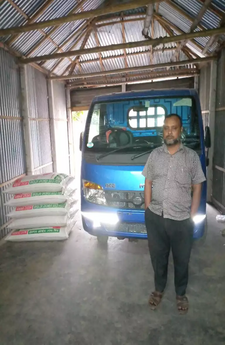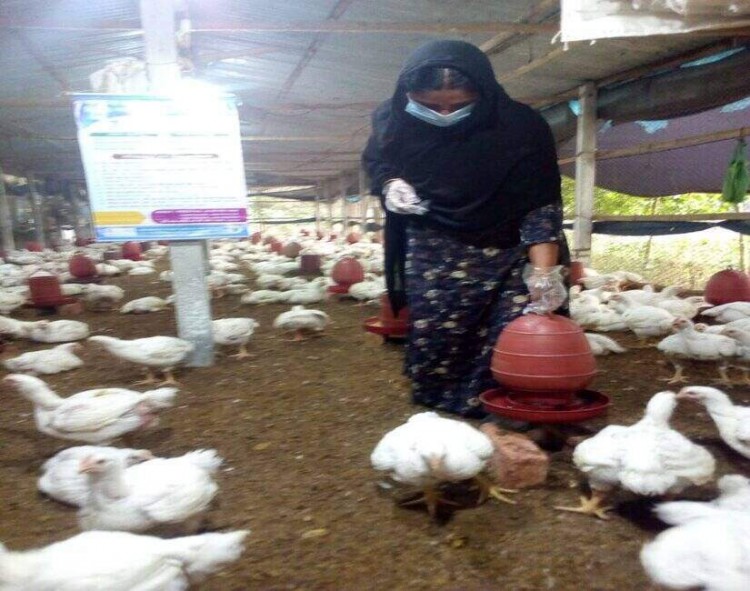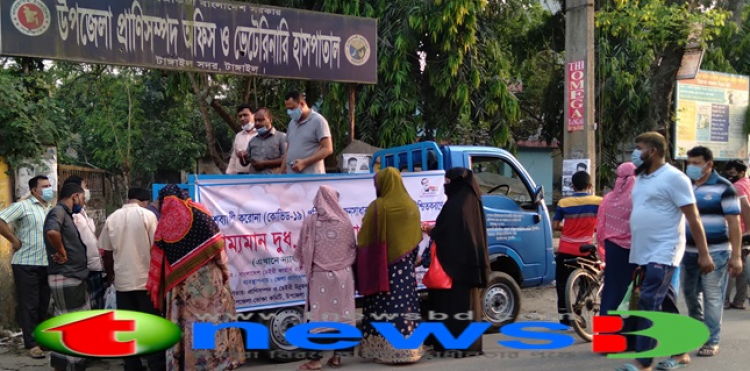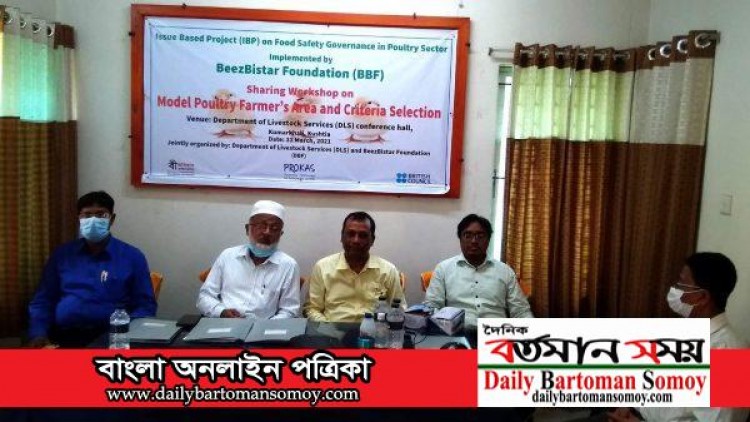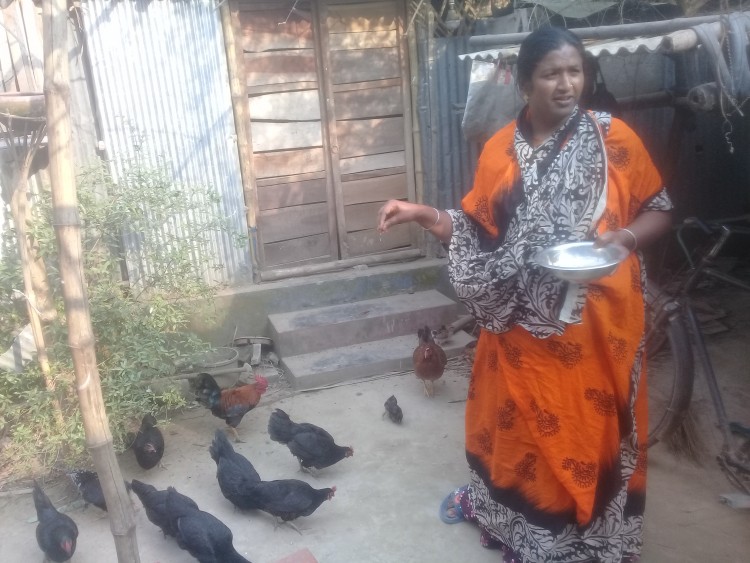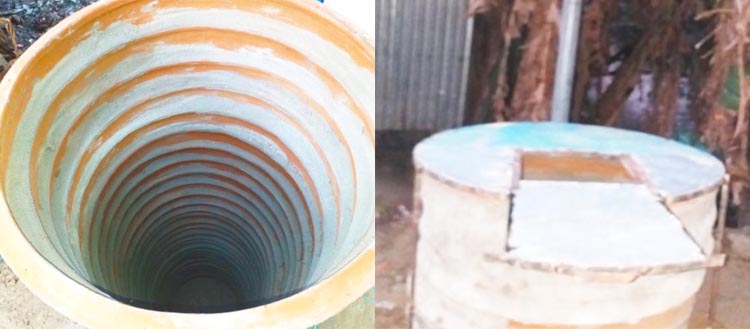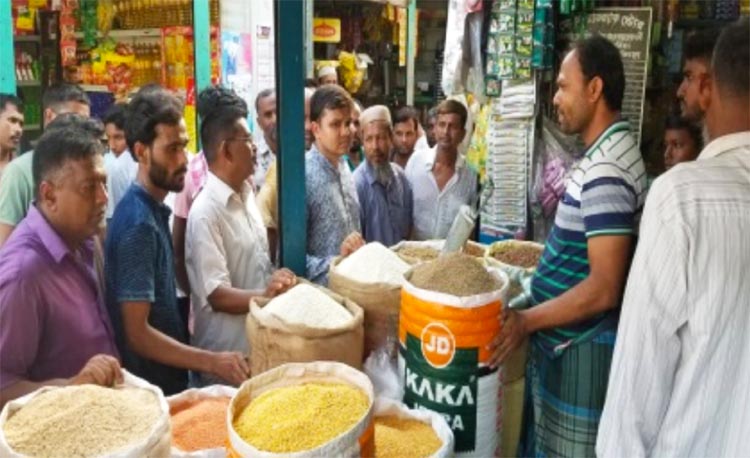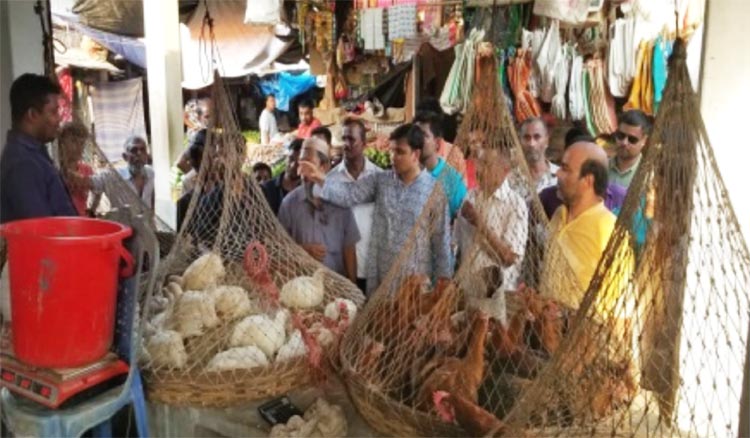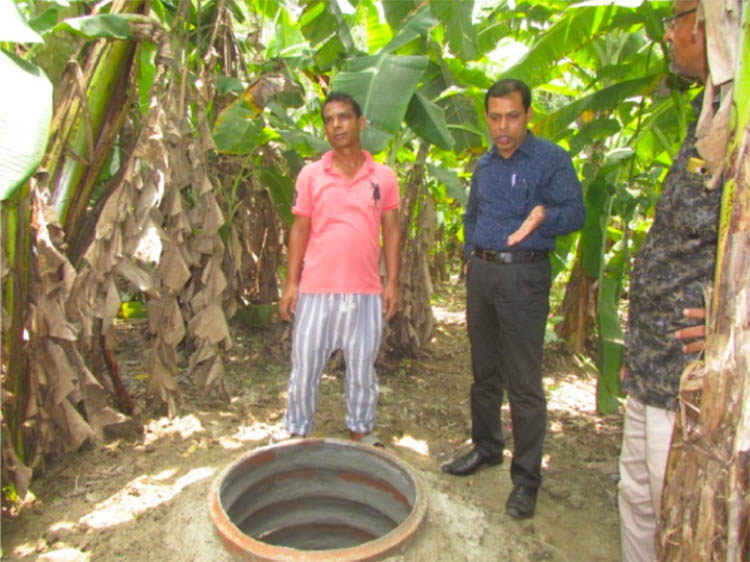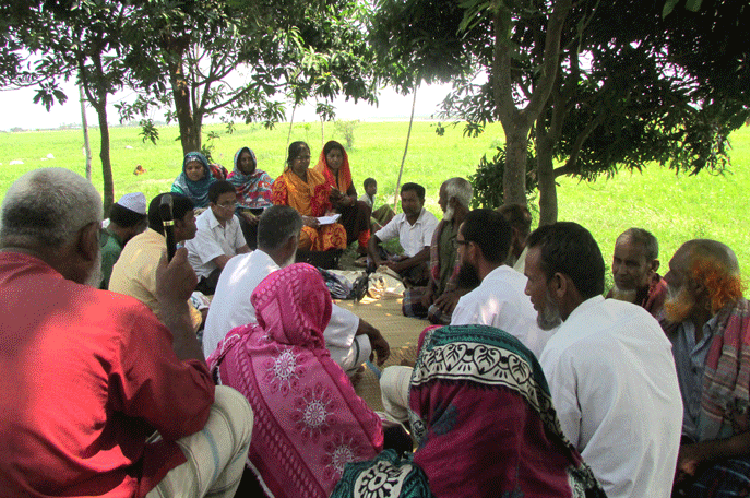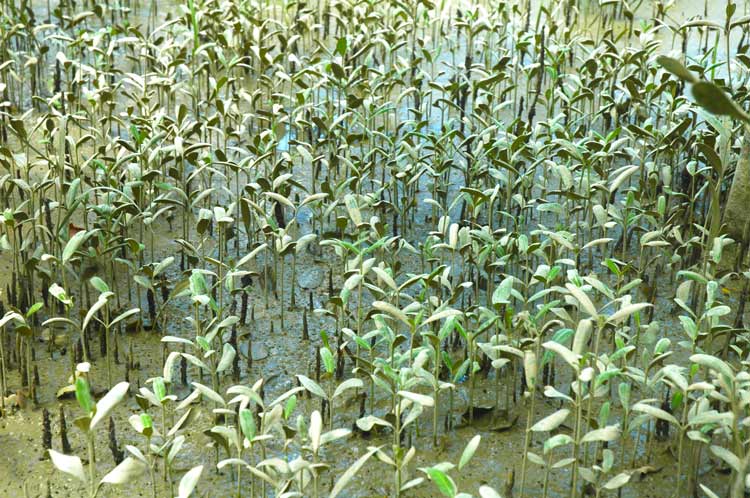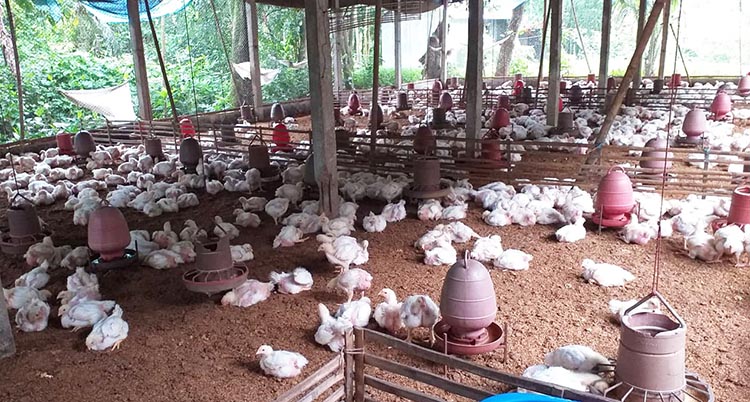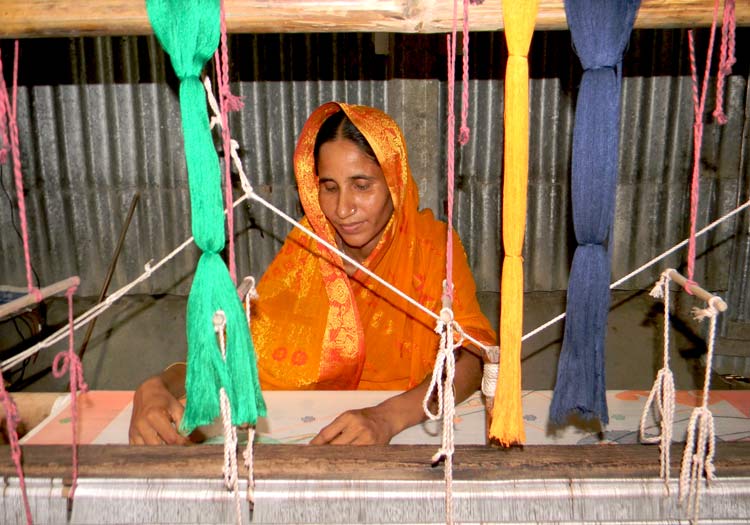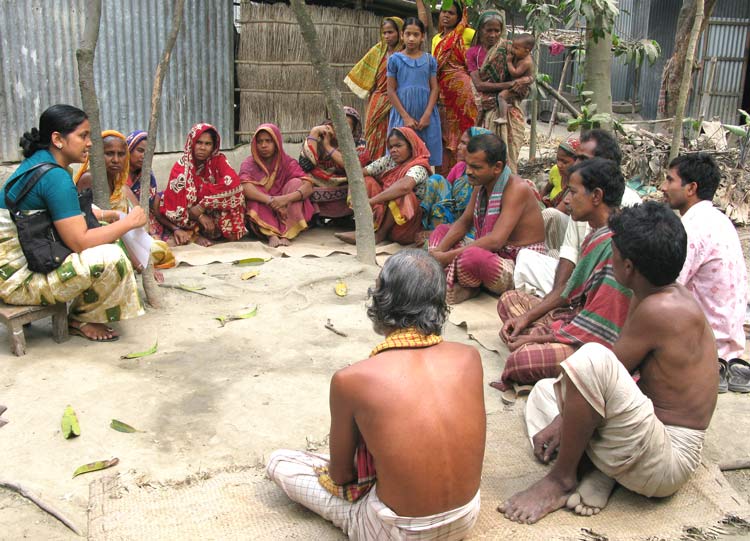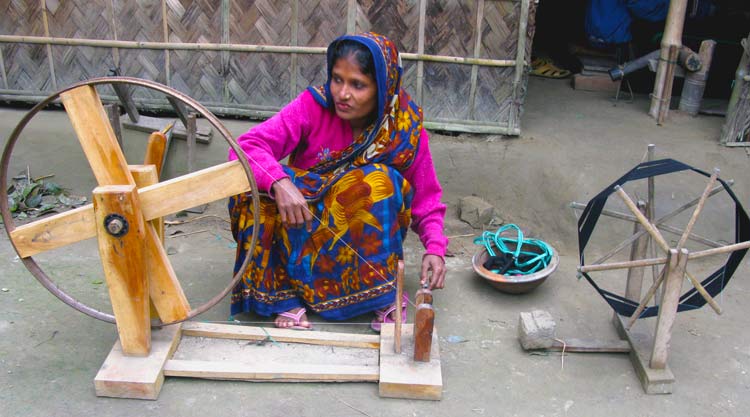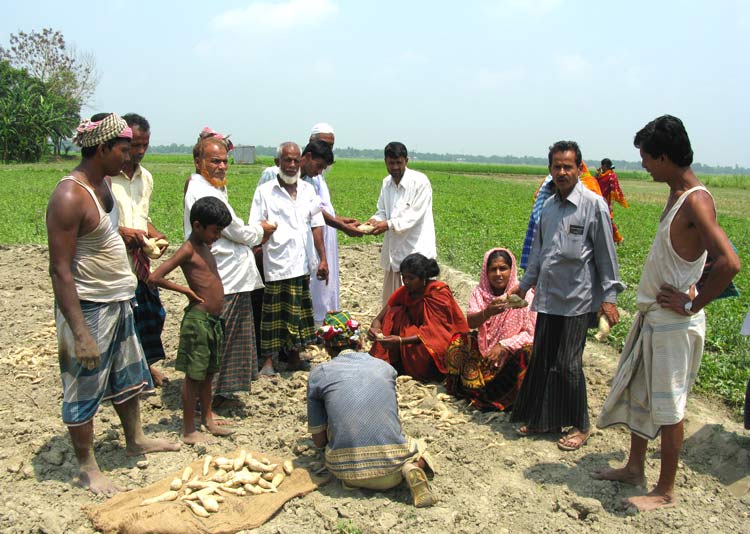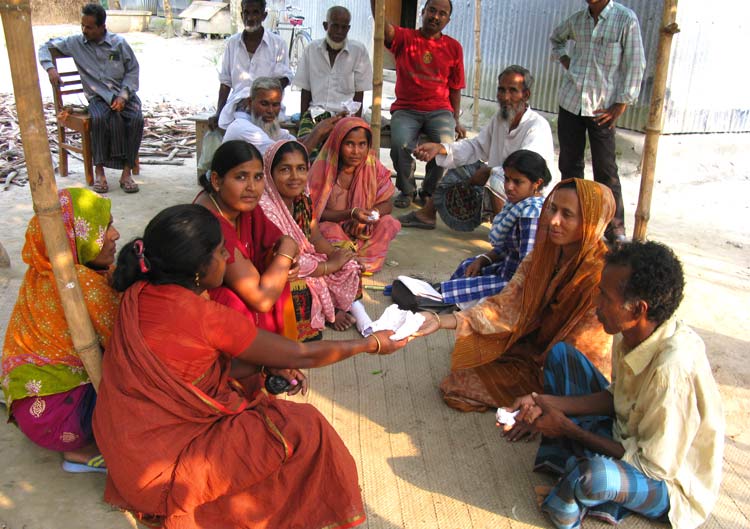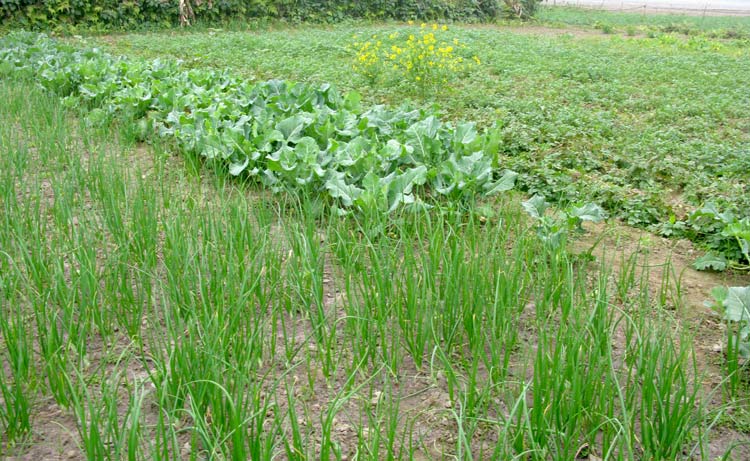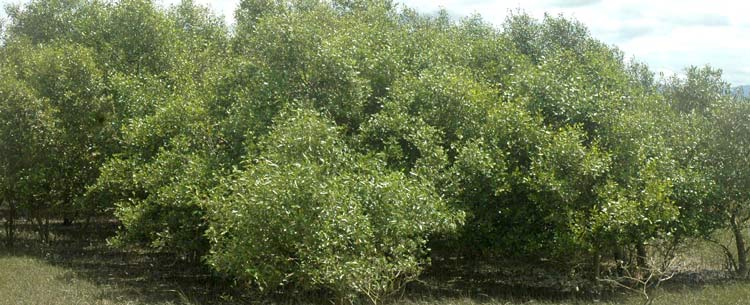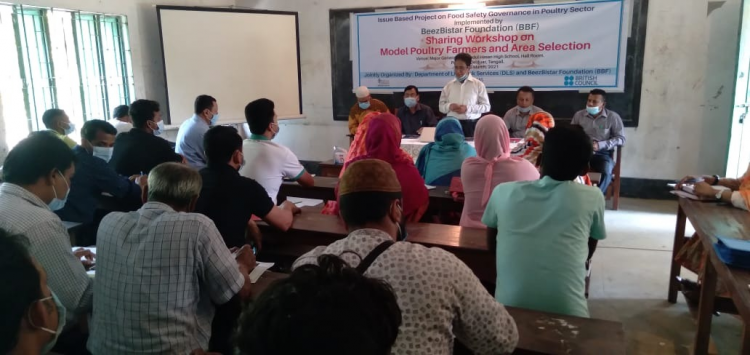Velvet bean, a Multiuse but Underutilized Plant
Velvet bean is originally a plant from south Chaina and east India and now grown throughout the tropics in limited areas. The plant is Mucuna pruriens in Latin, refers to itching sensation as a result of contact with pod hairs. The plant is vigorous annual climbing legume. It is drought resistant but cannot tolerate water logging.
Velvet bean is also called magic bean. As an efficient cover crop it contributes to weed control of Impetata spp. in Benin and Ghana, is of major significance. The use of velvet bean to control Impetata spp. and Saccharum spp. has also been reported from Colombia and Panama (Buckles et al. 1998).
Ve (Read More)
Safe poultry enriching pregnant vulnerable mother nutrition
Model poultry farmers of Beez Bistar Foundation (BBF) have been producing safe poultry in collaboration with Department of Livestock Services (DLS). In Delduar Upazila and the Sadar Upazila of Tangail district there are 98 model poultry farmers. They are producing safe poultry meat and eggs maintaining bio safety measures that they have trained on it with the BBF Food Safety project. During this period the women model poultry farmers in Delduar and Sadar Tangail have series of meetings with pregnant mother and lactating mother in the BBF project areas. In addition the Model Poultry farmers have developed linkage with the Common Understandi (Read More)
A Survey of BBF: Achieving Sustainable development goals (SDGs)-2030
The Sustainable Development Report 2021 ranked Bangladesh as one of the countries that improved most on the Sustainable Development Goals (SDG) Index since 2015 until the outbreak of the Covid-19 pandemic. According to the Bangladesh Progress Report 2020 (on SDGs)- the Bangladesh government is 'fostering accelerated, inclusive and resilient growth.' The government is also making investments in human development, promoting social safety nets, and implementing other programs for addressing the 'Left No One Behind' issues. The Bangladesh government is implementing all-out efforts with a ‘Whole of Society’ approach to eradicate pov (Read More)
COVID-19 Initiative
During COVID-19 pendamic, BeezBistar Foundation took different initiatives to control the spread of the COVID-19 effect. Spraying in the bazars and live bird markets are one of them. A local newspaper of "Vorer Kagoj",Kumarkhali, Kushtia reported this in their newspaper which grabed attention of the local authorities. Then the local government also replicated this initiative to other areas.
(Read More)Women entrepreneurship through safe poultry production
“IBP on Food Safety Governance in Poultry Sector” project have been engaging with women and young people in the poultry sector to explore the specific challenges that they face in the sector and identify specifically targeted strategies for addressing those challenges that can be taken up by Government and civil society. In this regard guided by insight gained through outreach to these groups as part of its work to act on its Gender Equality and Social Inclusion (GESI) Policy. There are 10 women groups formally developed with 125 women poultry farmers. In addition 293 poor and marginalized women poultry farmers involved with th (Read More)
Hand wash setup with soap : Prevention of Coronavirus
Though in this pandemic situation people are going out in the market, but a kind of panic is working in their minds. Again, the family members are also worried about whether he went to the market and got infected with Corona virus. Doctors are talking about washing hands frequently with soap to prevent this virus. Even though everyone washes their hands with soap at home, there is no system to wash the dishes in the market.
Therefore, BeezBistar Foundation and Upazila Consumer Committee of Delduar, Tangail Sadar and Kumarkhali jointly organized for setting up hand washing facilities with soap in front of the market and p (Read More)
Awareness through SMS on COVID -19 Pandemic
The outbreak of coronavirus disease 2019 (COVID-19) has created a global health crisis that has had a deep impact on the way we perceive our world and our everyday lives. Not only the rate of contagion and patterns of transmission threatens our sense of agency, but the safety measures put in place to contain the spread of the virus also require social distancing and other measures to be abide by refraining from doing what is inherently human, which is to find solace in the peoples. Within this context of physical threat, social and physical distancing, as well as public alarm, what has been and can be the role of the different individual, (Read More)
Safe Poultry Farm Management During COVID-19 Pandemic
In the Corona virus situation the poultry farmers were facing difficulties about the farm management and marketing of their products. For support of the farmers, two discussions meetings were organized jointly by BBF and DLS on safe farm management in Covid-19 situation. Total of 27 participants including Upazila Livestock Officer, Upazila Sanitary Inspector on behalf of Upazila Health Department, Representatives of Market Committee, Farmers, Dealers, and Poultry Vendors were present in the event
Safe poultry farm management, regular cleaning of poultry equipment, non-use of antibiotics without veterinarians advice, renewal of (Read More)
Poultry and dairy products marketing through dealer pick up van
Saiful Islam, a model feed dealer of Sadar Tangail Upazila. He involved with Food Safety Governance in Poultry Sector Project since 2018. He have been participated series of events organized by Food Safety project on poultry sector awareness and governance. He have licensed as feed dealer and followed safe management of his shop with hygienic storage. He have been selling only DLS licensed feed mills feed with followed the booklet published by the Food Safety project on DLS licensed feed mills. He is very friendly and move around poultry farmers as regular basis for reaching them quality poultry feed and also supporting poultry farmers for (Read More)
Recognition and certification of UCC
The representatives of Upazila Consumer Committee (UCC) have been very actively working for strengthening food safety governance in poultry sector in collaboration with Department of Livestock Services (DLS), Department of Health, Local administration and Local Government Institutions (LGI). The respective government departments and LGI became very happy regarding the active and lively participation of the UCC representative for system change and better implementation of laws and policies for safe poultry production and improving value chain.
For the recognition of UCC members at Tangail, Delduar, Kumarkhali and Sreepur (Read More)
Migrant Labour Became Poultry Farmer Entrepreneur in Sadar Tangail
There have been observing serious economic loss in the areas of remiteance sectors as like as other sectors in Bangladesh for sudden pandemic outbreaks started from March 2020 to date . Migrant workers have been the hardest hit who came to the country before and during the pandemic period could no longer return to their work abroad as well there is no opportunity to create alternate work scope for huge returnee migrants. As a result, they have been staying at the home and became unemployed for a long time with passing very financial and social crisis specially during country wide lockdown situation in fi (Read More)
Entrepreneurship Development Through Model Poultry Farming
The Concept creating “Model poultry farmer” is one of the main criteria for the IBP on food safety governance in poultry sector project. For attaining this approach, BeezBistar Foundation (BBF) has been working solely with the help of Department of Livestock Services (DLS). Different initiatives have been taken for developing this idea. “Safe Broiler husbandry Information Book” and “Training module poultry value chain” are two of those initiatives. These IEC materials published by BBF in collaboration with DLS. These books helps the farmers to keep track of the safe poultry productivity of their poultry (Read More)
টাঙ্গাইলে ভ্রাম্যমান দুধ, ডিম এবং ব্রয়লার মুরগির মাংস বিক্রয়
দেশব্যাপী করোনা (কোভিড -১৯) পরিস্থিতিতে জনসাধারণের প্রাণিজ পুষ্টি নিশ্চিতকরণে টাঙ্গাইল সদ সদর উপজেলা প্রাণিসম্পদ দপ্তর, উপজেলা ভোক্তা কমিটি এবং বীজবিস্তার ফাউনডেশন টাঙ্গাইলের উদ্যোগে টাঙ্গাইল শহরের বিভিন্ন জায়গায় ভ্রাম্যমানভাবে দুধ, ডিম এবং ব্রয়লার মুরগির মাংস নায্যমূল্যে শনিবার (১০ এপ্রিল) থেকে বিক্রয় শুরু হয়েছে।মানুষের মধ্যে নায্যমূল্যে ডিম, দুধ এবং মাংস বিক্রয় ভোক্তাদের মাঝে ব্যাপক সাড়া ফেলেছে।
এ সময় উপস্থিত ছিলেন টাঙ্গাইল সদর উপজেলা প্রাণিসম্পদ দপ্তরের ভেটেরিনারি সার্জন ডাঃ আবু সাঈম আল সালাউদ্দিন এবং সদর উপজেলা ভোক্তা কমিটির সাধারণ সম্পাদক সাইফুল ইসলাম, রফিকুল ইসলাম ও বীজবিস্তার ফাউনডেশানের ফিল্ড কো-অর্ডিনেটর (Read More)
কুমারখালীতে নিরাপদ খাদ্য নিশ্চয়তায় নিরাপদ পোল্ট্রি উৎপাদনে কর্মশালা অনুষ্ঠিত
নিরাপদ খাদ্য নিশ্চয়তায় নিরাপদ পোল্ট্রি উৎপাদনে কুষ্টিয়ার কুমারখালীতে মডেল পোল্ট্রি খামারী ও ভোক্তা কমিটির সদস্যদের অংশগ্রহণে কর্মশালা অনুষ্ঠিত হয়েছে।
বুধবার (৩১ মার্চ) সকাল ১০টায় উপজেলা প্রাণি সম্পদ কর্মকর্তার কার্যালয়ের সভাকক্ষে এ কর্মশালা অনুষ্ঠিত হয়েছে। ব্রিটিশ কাউন্সিলের প্রকাশ প্রোগ্রামের সহায়তায় বীজবিস্তার (Read More)
Recognition to live as a respectable citizen: Keya Khatun
Gender and Social inclusion (GESI) is one of the key area that Issue Based Project (IBP) on Food Safety Governance in Poultry Sector project have been intensively working with marginalized group of the people. Keya Khatun, a transgender involved with the project through women poultry farmers group and became an entrepreneur poultry farmer. 44 years old Keya, daughter of Sanwara Begum and Suruzzaman: Jabdubouza, Kumarkhali, Kustia is a backyard poultry farmer.
Keya khatun was born in Charpakundia village, Madarganj upazilla, Jamalpur district. She has one sister and one brother. Her father is a small farmer. Her family members (Read More)
Participation of women in commercial poultry farms in four Upazilas of Bangladesh
A short study on participation of women in small and medium scale commercial poultry farms in Panchlaish, Delduar, RangpurSadar and KumarkhaliUpazila was conducted by UBINIG (Policy Research for Development Alternative) that was sponsored by BeezBistar Foundation under the issue based project on Food Safety Governance in Poultry sector supported by Pr0moting Knowledge for Accountable System( PROKAS),British Council. The study was conducted during the period of May 2019 - July, 2019 by a research team of UBINIG. The information was collected both in quantitative and qualitative forms. Forty questionnaire-based interviews of small and medi (Read More)
Waste Management System Developed in Delduar Dakhin Bazar Live Bird Market
With a view to reducing the Live Bird Market (LBM) hazards, Dr. Habibur Rahman, Upazila Livestock Officer, Delduar designed an environment friendly low-cost pit/house for LBM poultry waste disposal. BeezBistar Foundation (BBF) held a discussion including the Upazila Livestock Department, Consumers Committee, and Local Market Committee for making the environment friendly waste disposal pit. Delduar Dakhin Bazar Committee provided the proper space needed for construction of the pit and the money for purchasing all the inputs. With strong multi stakeholder cooperation and support of all concerned the waste disposal pit was constructed and com (Read More)
Recognition of Food Safety Joint Monitoring Activity by Local Administration
Strengthened market monitoring and complaint management
Food safety governance in poultry sector project has been implemented in Kumarkhali Upazila from 2017 by Beez Bistar Foundation (BBF) with the support from Promoting Knowledge for Accountable System (PROKAS), British Council. Under this project regular monthly joint monitoring activity is continuing from 2018 to date. The joint monitoring is carried out by the representatives from Department of Livestock Services (DLS) at Upazila level, Consumer Committee, local administration, market committee and local government in local (Read More)
Joint Monitoring of Poultry Sector by Local Administration
Food safety governance in poultry sectors project was implemented in Kumarkhali Upazila from 2017 by BeezBistar Foundation (BBF) with the support from Promoting Knowledge for Accountable System (PROKAS), British Council. Under this project a monthly joint monitoring activity has been continuing from 2018 to date. In each project area BBF conducted one joint monitoring visit headed by Upazila Livestock Officer in local live bird market, feed dealer and poultry farmers. The purpose of joint monitoring visit is to check the registered farms and licensed dealers whether thy follow the feed rules and act properly to ensure food safety governanc (Read More)
Strengthened food safety joint monitoring by Consumers Committee (CC) with multi-stakeholders engagement
Name: Upazilz Consumers Committee (UCC). Address: Delduar Upazila, Tangail District.
Background and previous situation of UCC
The members belonging in the Upazila Consumers Committee (UCC) are living in the communities as an individual identity. They were no/less concern regarding the situation of food safety. There were no platform for raising their voice on food safety. There was no formal monitoring system on food safety issues in poultry farms, feed dealer and Live Bird Market (LBM) sellers in the project areas. The (Read More)
Md. Nurul Islam Live Bird Market (LBM) seller Developed waste disposal pit
Elasin Bazar of Delduar upazila has a big Live Bird Market (LBM) where 11 LBM sellers continued business from many years. Overall environment of Elasin Bazar was not so good as like as other LBM before the start of Food Safety (FS) project by Beez Bistar Foundation (BBF). Under this project monthly joint monitoring visit in LBM along with monthly consulting meeting with LBM sellers have been conducted from 2018. Now the scenario of LBM has been changing day by day as joint monitoring visit and CC members are continuously motivating LBM sellers to adopt good personal hygiene and good slaughter practices.
LBM seller Md. Nurul Islam s (Read More)
Salma changed her life by system change of Food Safety (FS) project
Name: Slama Akter; Address: Village: Galutia, Union : Selimpur, Dist: Tangail. Profession: Poultry Farmer
Background and previous situation of Salma
Salma Akter (30) is a poultry farmer who got married at the age of 16 years. Salma’s husband hada small poultry farm of 300 chickens where Slama worked in absence of her husband. About two years after marriage Slamas Husband wentabroad as alabor. In absence of Salma’s husband her grandmother did not give permission to run the poultry farm due to continuous los (Read More)
Good Farm Management help reduce Poultry Farm Production Cost
Name: Md. Milon; Address: North Keshobpur, Joduboira, Kumarkhali, Kushtia. Background and previous situation of Milon.
Md. Milon (27), a broiler farmer lives in NorthKeshobpur village of Kumarkhali Upazila. Hehas been running his farm for five years. He did not have clear idea about farm registration, withdrawal period of antibiotics, licensed poultry feed before 2018. He ran his poultry farm on credit facility from feed dealers as he didn’t have enough money to continue his farm business. Milon used all medicine and vaccine according to feed dealers and pharmaceutical company representativesadvice that have the overdosing and (Read More)
Sensitization of Farmers on Good Agricultural Practices, Code of Practices and Food Safety
Food safety is one of the most important issues in Bangladesh. With a view to assuring the availability of safe food, Food and Agricultural Organization (FAO) of the UN is supporting Beez Bistar Foundation (BBF) for “Creating public awareness on Good Agricultural Practices (GAP), Code of Practices (COP) and Food Safety”. The activities are implemented for sensitization of 100,000 farmers in 12 districts on GAP, COP and Food Safety since February, 2017.
Good Agricultural Practice (GAP)
GAP includes a set of principles, regulations and practices applicable to p (Read More)
Mangrove for Livelihood
Safeguarding life and livelihood of Char Syedkhali
A Case Study on the Initiative of BeezBistar Foundation for Mangrove Plantation in Char Syedkhali of Zia Nagar Upazila. Submitted to HEKS. BeezBistar Foundation Dhaka, Bangladesh January 2012.
Background of Zia Nagar
ZiaNagar of Pirojpur District is a costal Upazila. It is a small Upazila consisting of only 3 Unions. Three (3) major rivers namely Kacha, Balishwar and Pankuchi are flowing around the Upazila. Among these 3 Unions Balipara is more vulnerable cons (Read More)
Study on Food Safety Governance in Poultry Sector, Bangladesh
The Study of Food Safety Governance in Poultry Sector, Bangladesh was conducted by Beez Bistar Foundation during November 2016 to February 2017 under the aegis of PROKAS (Promoting Knowledge for Accountable Systems), British Council. It was an exploratory study know about safety aspects in the poultry sector. The major questions were:
- What are the explicit and implicit incentives inhibiting or promoting the production of unsafe poultry products? Why do people do it/not take the time or spend the money to ensure safe production?
- How do existing laws and policies regulate the poultry? To what extent are existing laws (Read More)
Sharing sessions with Handloom weavers
Annual brief report 2013 - 2014
During this reporting period 24 sharing sessions were held in the project sites of Tangail and Kushtia among the handloom weavers. There were 635 weavers attended attended the day long training. The main topics of the training included the following
a. The criteria for quality standard of yarn
b. Design development
c. Cost management
d. Storing of weaving products
e. Marketing of finished products
It was participatory discussion in the training that there wer (Read More)
Skill and Design Development Trainings for Small and Marginal Weavers
Annual Brief Report 2014-2015
During the reporting period, BeezBistar Foundation organized two training sessions on‘skill and design development’ in Tangail and Kushtia. The duration of each training session was for two days. The training mainly dealt with contemporary design and its relation with skill. Total 30 weavers attended in these two trainings.
During the sessions, weaves attended in these trainings were given some designs and the trainers narrated about them and explained how the weavers could accomplish them.
(Read More)
Working with handloom weavers
The handloom industry in Bangladesh has enormous potentiality and the weavers are very skilled in their respective craft weaving. However, due to lack of support many of them were forced to change their occupation and leave weaving.
BeezBistar Foundation carried out a project called Rural Entrepreneur and Development in Handloom Weaving (Livelihood for home weavers families). The conceptual premise of this project lies in appreciating the significance and value of handloom and the urge to search for a rural development approach that can transform rural economy positively by linking the sector to the needs of domestic economy. The un (Read More)
Meeting with farmers for practicing and strengthened biodiversity based ecological agriculture
Annual brief report 2013 -2014
Regular meetings on biodiversity based ecological agriculture were held in the selected villages for presentation of the principles of ecological agriculture among the farmers and other members of the society. Thirty eight community meetings were held in the twenty selected villages in five districts. Two such meetings were held in the bigger villages while only one meeting was held in each of the smaller villages. The main purpose of holding these meetings was to identify the interested farmers for persuasion of ecological agriculture.
There (Read More)
Learning Sessions for Small & Marginal Farmers
Annual Brief Report 2014-2015
BeezBistar Foundation organized two Learning Sessions in Tangail and Pabna. Total 30 leading and committed farmers both men and women attended in these sessions. Each session was for two (2) days. The training mainly focused on Bio-diversity-based food production systems to ensure the quality and nutritious content of food. The farmers reflected that it was very helpful for them to understand how to ensure food safety and quality of food. The learning session also dealt with market chain of the ecologically produced food.
The session focused (Read More)
Food and Seed Sovereignty and Community Prosperity: Food Sovereignty for Marginal Farmers
The project activities were implemented in three districts of Tangail, Pabna and Cox’sbazar. These districts represent major agro ecological zones including flood plain, dry & drought prone and coastal regions of Bangladesh. Biodiversity based ecological agriculture was spread among the farming communities through offering learning sessions to farmers and other stakeholders. Genetic resources were managed through collection, regeneration and conservation. Advocacy & networking among development organizations, local government institutions, government officials and sharing experiences among farmers of different regions were im (Read More)
Mangrove plantation In Badarkhali
Annual brief report 2013- 2014
Mangrove Plantation Research activities have been carried out in the Badarkhali union, Chakaria upazila, Cox’sbazar district. Selection of land for plantation of mangrove vegetation, establishment of nursery, planting saplings in the selected areas, maintenance of mangrove vegetation were the main activities implemented in this reporting period.
Establishment of Nursery for Keora (Sonneratia apetala)
Kaora and Bain are regarded as the pioneer species for mangrove vegetation. Keora grows in (Read More)
Mangrove plantation in coastal region during 2010-2011
The coastal region of Bangladesh has been vulnerable to natural disasters for ages. However, the people both in south-eastern and south-western regions managed their vulnerability based on community knowledge and adapted a number of coping method not only to survival but to earn their livelihood. But due to change of global economic trends mainly for the developing countries with diverse natural resources could not save them and had to undergo several instructions by the institutions like World Bank, IMF and UNDP for export-oriented growth. Since then the livelihood of the coastal poor people became vulnerable and they have lost a numbe (Read More)
